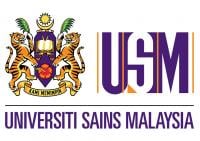Content is provided by our community of institutions, partners, researchers and journalists.

Nature Publishing Group
26 Jul 2006
The role of particular neurons in a region of monkeys’ brains known to be important for object recognition is more clearly established by a study appearing online in Nature this week. The research shows that artificially activating these nerve cells biases the monkey’s choices in face categorization tasks.

Nature Publishing Group
26 Jul 2006
Summaries of newsworthy papers in Nature include Planetary science: Methane storms on Titan, Microbiology: Acid-loving microbes thrive in deep-sea heat baths, Geology: Faulting the ocean floor, Solid-state physics: Spin doctors leave their mark/produce material benefit, How fishy fins arise

Social Assistance and Rehabilitation for the Physically Vulnerable
26 Jul 2006
In an attempt to understand the potential cause of rickets in Bangladesh, SARPV conducted a study of 70 households. The results show that diet, food preparation, sunlight exposure and breastfeeding are all major possibilities

IPCRI - Israel/Palestine Center for Research and Information
25 Jul 2006
It has been said that wars create opportunities for political changes. The current Middle East crisis should be used by decisions makers to create opportunities to bring the region into a new era of regional and bilateral negotiations aimed at dealing with the Israeli-Arab conflict in a comprehensive fashion.

Divan Enterprise (indianjournals.com)
25 Jul 2006
This study attempts to establish a link between organizational culture and managerial thinking. This kind of analysis would help managers to adopt tactics to effectively deal with people in a cultural context.

Nature Publishing Group
23 Jul 2006
NATURE AND THE NATURE RESEARCH JOURNALS PRESS RELEASE - For papers that will be published online on 23 July 2006 including Large-scale turbulence - Nature Physics, Gleevec may cause heart problems - Nature Medicine, Neutralizing HIV - Nature Structural & Molecular Biology

Keio University
21 Jul 2006
Stenting is the reinforcement of an artery to prevent it from closing following surgery. The study finds that the use of sirolimus-eluting stent (SES) would be a cost-saving option as compared with bare metal stent (BMS) implantation within the context of the Japanese healthcare system.

Universiti Malaysia Sarawak
19 Jul 2006
A preliminary study in the trends of language use among Malay families in Kuching, Sarawak and a case study of language use with the younger generation in Foochow families

Nature Publishing Group
19 Jul 2006
Summaries of newsworthy papers for Nature VOL.442 NO.7100 including Astrophysics: Nova again, Geology: How the Red Sea is parting again, Biology: Unexpected inheritance, Materials chemistry: Graphite unpeeled and finally... Pack it in!

Universiti Sains Malaysia
18 Jul 2006
Infertility is a major problem amongst 10-15% of married couples where the male partner contributes to 30-40% of the cause. Tongkat Ali has long been used as a traditional herbal remedy for the enhancement of male libido.

ICDDR,B: Centre for Health and Population Research
18 Jul 2006
Widespread malnutrition is prevalent among all FSVGD women and their children aged less than 5 years. A higher prevalence of malnutrition in 12-23-month age-group is probably attributable to inadequate feeding practice from birth, and the poorer nutritional status of female children might be due to gender discrimination in that community.

Nature Publishing Group
16 Jul 2006
Nature and the Nature Research Journals Press Release for papers that will be published online on 16 July 2006. Summaries of newsworthy papers include Neurodegeneration: Alternative genetic cause of devastating dementia, Cold sore virus can evade the immune system

Universiti Sains Malaysia
14 Jul 2006
The fertilizer produced was found to be comparable to those available in the market and can be used in the palm oil plantation, reducing the cost of fertilizer.

Keio University
13 Jul 2006
Adherence to antipsychotic treatment is an important aspect of long term management of schizophrenia and other related psychotic disorders. This study compared patients self-reports and clinician judgment of adherence behavior and explored their relationship with attitudes toward taking medication.

Nature Publishing Group
13 Jul 2006
The latest developments in brain-computer interface technology present a potential way to replace or restore lost motor function in paralysed humans. They are reported in two papers in Nature this week.

Nature Publishing Group
13 Jul 2006
A female-to-male transgendered scientist - analyses the suggestion that women are not advancing in science because of an innate inability. Other newsworthy papers include Air’s ‘radical’ self-cleaning ability, Molluscs of mat destruction, Hall of spin, Surprisingly, DNA has trouble unwinding, Wet is best, An atom abacus fashioned by light

The World Academy of Sciences (TWAS)
12 Jul 2006
Illycaffè and the Academy of Sciences for the Developing World (TWAS) have joined forces to honour four eminent scientists from the developing world.

Kogi State Arts and Culture
11 Jul 2006
Kogi State Council for Arts & Culture was formally established in 1995. The Performing Arts Department is the life wire of the Arts and Culture and is headed by Adavi Abraham, assisted by Mr. (Pastor) Joseph Itodo (Troupe Manager) and Mr. Ismaila Amidu is the captain of the Troupe.

Divan Enterprise (indianjournals.com)
11 Jul 2006
Nearly 70 per cent of the population in India is dependent on agriculture. The Indo-Gangetic Plain is agriculturally the most fertile region of the country and boasts of nearly 36 per cent of the bovine population of the country.

Nature Publishing Group
09 Jul 2006
Newsworthy papers from Nature and Nature Research Journals published online on 9 July 2006

Keio University
06 Jul 2006
IGF-I is an important signal during development, including brain growth. Impaired IGF-I signalling at the blood-brain-barrier by aging, inappropriate diet, sedentary life, stress, inflammatory mediators associated to illnesses and inheritance may underlie the influence of all these factors in development of Alzheimer’s disease.

Divan Enterprise (indianjournals.com)
06 Jul 2006
This book epitomizes the multidisciplinary expertise (linking economics, management, financial and cost accounting, and engineering) that electricity regulatory commissions must harness to effectively regulate the sector, despite high government ownership, strong utility–government linkages, inefficiencies, and weak commercial attitudes.

Swinburne University of Technology
06 Jul 2006
A critical view on emerging outsourcing business in Asian countries

Nature Publishing Group
05 Jul 2006
Tiger conservationists are trying a more business-like approach to saving the threatened species. In a “faking it” style test, a social scientist has fooled a panel of physicist judges into believing that he is an experienced gravitational wave physicist. Weblogs written by scientists are relatively rare, but some of them are proving popular.

Nature Publishing Group
05 Jul 2006
The H5N1 virus has entered Nigeria multiple times according to analyses of the virus, which show that the strains in different Nigerian poultry samples are not closely related. The discovery indicates that the virus has entered Nigeria - the first African country known to harbour the strain - in birds travelling from a range of independent sources.

Nature Publishing Group
05 Jul 2006
Summaries of newsworthy papers include Astronomy: A sunshade for seeing planets, Neuroscience: Monkey brain 'tuned' for face recognition, Virology: Retroviral invasion of the koala genome, Microscopy: Spot the nanoflaw and Low-temperature physics: Spot the difference

Nanyang Technological University
05 Jul 2006
Nanyang Technological University (NTU) push new frontiers in the development of creative technologies.

Asia Research News
05 Jul 2006
Peace and Conflict issues dominate the media and the daily lives of people in many parts of the world including Asia. ResearchSEA is running a special section to highlight research on Peace and Conflict. Experts in Peace and Conflict are listed here.

Northern Illinois University
05 Jul 2006
"Bridging the Gap: Engaging a New Generation in the Southern Philippines in Inter-Ethnic Dialogue and Conflict Resolution". "The Autonomous Region of Muslim Mindanao and Majority-Minority Relations in the Southern Philippines: Religion, Education, Community and Political Process."

Nature Publishing Group
05 Jul 2006
The theory that experimentation with cannabis is harmless and won’t lead to further drug use is challenged in an online publication in Neuropsychopharmacology this week.

